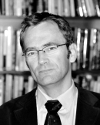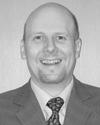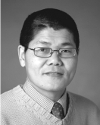Since 2006, our Network has emerged and grown almost by itself. It comprises a diverse group of individuals, with quite varied disciplinary experiences, from professional settings in the private and public sectors, and beyond academia. Formed originally by members from the Environmental Informatics and Control Program in the Warnell School at the University of Georgia, the scope of the Network’s activities has spread markedly to other groups and individuals in Europe and Asia. We are gratified by the balanced mix of both young and experienced professionals who are committing their talents to realizing the vision of CFG with such enthusiasm. The Network is funded by the Wheatley-Georgia Research Alliance Endowed Chair at the University of Georgia.
Core Members
M. Bruce Beck
 Bruce Beck is Professor and Eminent Scholar in the Warnell School of Forestry and Natural Resources at the University of Georgia, where he holds the Wheatley-Georgia Research Alliance Endowed Chair in Water Quality and Environmental Systems. He is also a Visiting Professor in the Department of Civil and Environmental Engineering at Imperial College London. He has been a Visiting Scientist (1990-94) at the US Environmental Protection Agency (EPA), a Visiting Scholar at the Isaac Newton Institute for Mathematical Sciences in Cambridge (1998), and an Institute Scholar at the International Institute for Applied Systems Analysis, Laxenburg, Austria (2006-2009). His publications include the book Environmental Foresight and Models: A Manifesto (2002) and the 2009 White Paper for the US National Science Foundation (NSF) on Grand Challenges for Environmental Modeling. Bruce began working on infrastructure for Sustainable Cities at the end of the 1980s. In 1999 he was recognized by an award from the US EPA’s National Competition on “Sustainable Urban Water Resources Infrastructure: A Vision of the Future”. He has led the Sustainability initiative of the International Water Association (IWA) since its inception in 2001. He has been a contributing speaker at the US East Coast Senior Executive Seminar of the Prince Wales’s Business & the Environment Programme. In 2008 he joined the Advisory Board of Avenir Global Investment Advisors (Switzerland). Find more information in his webpage at UGA. Email: mbbeck@cfgnet.org
Bruce Beck is Professor and Eminent Scholar in the Warnell School of Forestry and Natural Resources at the University of Georgia, where he holds the Wheatley-Georgia Research Alliance Endowed Chair in Water Quality and Environmental Systems. He is also a Visiting Professor in the Department of Civil and Environmental Engineering at Imperial College London. He has been a Visiting Scientist (1990-94) at the US Environmental Protection Agency (EPA), a Visiting Scholar at the Isaac Newton Institute for Mathematical Sciences in Cambridge (1998), and an Institute Scholar at the International Institute for Applied Systems Analysis, Laxenburg, Austria (2006-2009). His publications include the book Environmental Foresight and Models: A Manifesto (2002) and the 2009 White Paper for the US National Science Foundation (NSF) on Grand Challenges for Environmental Modeling. Bruce began working on infrastructure for Sustainable Cities at the end of the 1980s. In 1999 he was recognized by an award from the US EPA’s National Competition on “Sustainable Urban Water Resources Infrastructure: A Vision of the Future”. He has led the Sustainability initiative of the International Water Association (IWA) since its inception in 2001. He has been a contributing speaker at the US East Coast Senior Executive Seminar of the Prince Wales’s Business & the Environment Programme. In 2008 he joined the Advisory Board of Avenir Global Investment Advisors (Switzerland). Find more information in his webpage at UGA. Email: mbbeck@cfgnet.org
R. Villarroel Walker
 Rodrigo is the program coordinator of the CFG Network. His interests are centered on addressing questions of the sustainability of cities, the inter-relationship between sustainability and climate change, and the interaction of the city with cycles of materials and energy through regional systems. He is developing simulation approaches for identifying synergies amongst multiple economic-industrial sectors, such as the energy, water, and waste management sectors. His goal is to understand what triggers business opportunities with the capacity to contribute to moving the city/region towards a more sustainable status. Rodrigo received his BSc in Chemical Engineering in 1998 from the Simon Bolivar University in Venezuela. He then worked for over 7 years as a process engineer for a consulting company in the petroleum and gas industry. His PhD (2010) is from the Warnell School. It was awarded for research on the metabolism of human-manipulated systems (water, nutrients, and energy) and decision making under uncertainty. Email: rvwalker@cfgnet.org
Rodrigo is the program coordinator of the CFG Network. His interests are centered on addressing questions of the sustainability of cities, the inter-relationship between sustainability and climate change, and the interaction of the city with cycles of materials and energy through regional systems. He is developing simulation approaches for identifying synergies amongst multiple economic-industrial sectors, such as the energy, water, and waste management sectors. His goal is to understand what triggers business opportunities with the capacity to contribute to moving the city/region towards a more sustainable status. Rodrigo received his BSc in Chemical Engineering in 1998 from the Simon Bolivar University in Venezuela. He then worked for over 7 years as a process engineer for a consulting company in the petroleum and gas industry. His PhD (2010) is from the Warnell School. It was awarded for research on the metabolism of human-manipulated systems (water, nutrients, and energy) and decision making under uncertainty. Email: rvwalker@cfgnet.org
Michael Thompson
 Originally a professional soldier, Michael Thompson studied Anthropology for his first degree and his PhD at University College London and his BLitt at Oxford. During these years he was also following a career as a Himalayan mountaineer (Annapurna South Face 1970, Everest Southwest Face 1975). His early research on how something second-hand becomes an antique (Rubbish Theory, 1979, Oxford University Press) led to work on the “energy tribes” (in various western think tanks), on risk, on Himalayan deforestation and sustainable development, on household product development (in Unilever), on global climate change, on technology and development, and on what might be called “the even newer Institutionalism” — published as Cultural Theory (co-authored with Richard Ellis and Aaron Wildvasky, 1990, West View) and Organising and Disorganising (2008, Axminster, Triarchy Press). Dr Thompson is a Fellow at the Institute for Innovation, Science and Society, Saïd Business School, University of Oxford. He was formerly a Senior Researcher at the Stein Rokkan Centre for Social Research, University of Bergen, Norway. He has been an Institute Scholar at the International Institute for Applied Systems Analysis (IIASA), Laxenburg, Austria, where he is currently affiliated with the Risk, Policy and Vulnerability Program. His artistic works (plays, photography) have been the subject of exhibitions at the Karl Ernst Osthaus-Museum Hagen and the Landesmuseum für Natur und Mensch, Oldenburg, Germany. Email: Michael.Thompson@uib.no
Originally a professional soldier, Michael Thompson studied Anthropology for his first degree and his PhD at University College London and his BLitt at Oxford. During these years he was also following a career as a Himalayan mountaineer (Annapurna South Face 1970, Everest Southwest Face 1975). His early research on how something second-hand becomes an antique (Rubbish Theory, 1979, Oxford University Press) led to work on the “energy tribes” (in various western think tanks), on risk, on Himalayan deforestation and sustainable development, on household product development (in Unilever), on global climate change, on technology and development, and on what might be called “the even newer Institutionalism” — published as Cultural Theory (co-authored with Richard Ellis and Aaron Wildvasky, 1990, West View) and Organising and Disorganising (2008, Axminster, Triarchy Press). Dr Thompson is a Fellow at the Institute for Innovation, Science and Society, Saïd Business School, University of Oxford. He was formerly a Senior Researcher at the Stein Rokkan Centre for Social Research, University of Bergen, Norway. He has been an Institute Scholar at the International Institute for Applied Systems Analysis (IIASA), Laxenburg, Austria, where he is currently affiliated with the Risk, Policy and Vulnerability Program. His artistic works (plays, photography) have been the subject of exhibitions at the Karl Ernst Osthaus-Museum Hagen and the Landesmuseum für Natur und Mensch, Oldenburg, Germany. Email: Michael.Thompson@uib.no
Charles van der Haegen
 Charles van der Haegen founded CoMind in 2005. CoMind is the central node in a business network offering guidance and advice to private and public companies, institutions, and communities in Europe on how to adapt their organization, and their decision and governance systems, in order to remain sustainable and successful in today’s fast-changing world. Prior to founding CoMind, Charles had accumulated over 30 years of experience in the private sector. For the first 15 years of this period, he worked for multi-national corporations, such as the Hachette Group (publishing); he was CEO of the Medical Equipment Division of the Thomson Group and then CEO of the Information Technology Diversification Venture, the Arbed Group. Over the subsequent 15-year period, Charles founded several of his own private-partnership companies, for the acquisition and development of middle-sized industrial companies. One of these was floated on the Paris Stock Exchange. Clients of CoMind include, amongst others, SNCF (the French national rail company), RATP (Paris Public Transport Authority), the French Post Office, Philips, and other large banks and companies. Charles is an active member of the Society for Organizational Learning (SoL), to which, in addition, he makes philanthropic contributions. He was educated at the Université libre de Brussels, Katholiek Universiteit Leuven, and the Vlerick Leuven-Gent Management School, Belgium. At age 55, 10 years ago, Charles van der Haegen’s real lifework began: Helping people and organizations successfully transition through paradigm changes. After a life as a businessman and entrepreneur, he embarked on understanding why the methods, tools and solutions of the past had not worked well for him (he was caught by surprise in the Internet Bubble). He wanted to understand. He wanted to make sure the kind of toil this bubble had caused would not repeat itself. He started to read, study, learn, listen, reflect, in new ways, in order to sense what was happening in the world. He understood what it would take to adapt for a future that was already there, fundamentally challenging so many existing paradigms. He understood how difficult transition would be, even for the best leaders and the best organizations. He felt he could partner with them in succeeding. He acted, created CoMind, radically re-oriented his networks, created partnerships with like minds, in complementary disciplines and domains. He tested his ideas with leaders, prototyping in small ways at first, gradually learning and acquiring experience. He finally experienced major breakthrough successes in helping leaders to fundamentally re-orient their organizations, with remarkable success. At 65 now, having toiled 10 years in fundamental change projects, he feels he can now raise the bar, contributing to more difficult and complex issues. For example how to take on a Grand Challenge such as “Cities as Forces for Good in the Environment”… Therefore he joined Bruce and Rodrigo in this venture. Together and with others who will gradually come on board, they will work hard to endeavor overcoming all obstacles in the way to transform this challenge into reality….
Charles van der Haegen founded CoMind in 2005. CoMind is the central node in a business network offering guidance and advice to private and public companies, institutions, and communities in Europe on how to adapt their organization, and their decision and governance systems, in order to remain sustainable and successful in today’s fast-changing world. Prior to founding CoMind, Charles had accumulated over 30 years of experience in the private sector. For the first 15 years of this period, he worked for multi-national corporations, such as the Hachette Group (publishing); he was CEO of the Medical Equipment Division of the Thomson Group and then CEO of the Information Technology Diversification Venture, the Arbed Group. Over the subsequent 15-year period, Charles founded several of his own private-partnership companies, for the acquisition and development of middle-sized industrial companies. One of these was floated on the Paris Stock Exchange. Clients of CoMind include, amongst others, SNCF (the French national rail company), RATP (Paris Public Transport Authority), the French Post Office, Philips, and other large banks and companies. Charles is an active member of the Society for Organizational Learning (SoL), to which, in addition, he makes philanthropic contributions. He was educated at the Université libre de Brussels, Katholiek Universiteit Leuven, and the Vlerick Leuven-Gent Management School, Belgium. At age 55, 10 years ago, Charles van der Haegen’s real lifework began: Helping people and organizations successfully transition through paradigm changes. After a life as a businessman and entrepreneur, he embarked on understanding why the methods, tools and solutions of the past had not worked well for him (he was caught by surprise in the Internet Bubble). He wanted to understand. He wanted to make sure the kind of toil this bubble had caused would not repeat itself. He started to read, study, learn, listen, reflect, in new ways, in order to sense what was happening in the world. He understood what it would take to adapt for a future that was already there, fundamentally challenging so many existing paradigms. He understood how difficult transition would be, even for the best leaders and the best organizations. He felt he could partner with them in succeeding. He acted, created CoMind, radically re-oriented his networks, created partnerships with like minds, in complementary disciplines and domains. He tested his ideas with leaders, prototyping in small ways at first, gradually learning and acquiring experience. He finally experienced major breakthrough successes in helping leaders to fundamentally re-orient their organizations, with remarkable success. At 65 now, having toiled 10 years in fundamental change projects, he feels he can now raise the bar, contributing to more difficult and complex issues. For example how to take on a Grand Challenge such as “Cities as Forces for Good in the Environment”… Therefore he joined Bruce and Rodrigo in this venture. Together and with others who will gradually come on board, they will work hard to endeavor overcoming all obstacles in the way to transform this challenge into reality….
For detailed background and professional experience see his LinkedIn profile, and for indications on present interest areas see his personal Blog. Email: charlesvdh@pvac.skynet.be
Dipak Gyawali
 Dipak Gyawali, who is Pragya (Academician) of the Nepal Academy of Science and Technology and Research Director of the Nepal Water Conservation Foundation, studied hydroelectric power engineering from Moskovsky Energetichesky Institute, USSR (1979) and Political Economy of Resources at the Energy and Resources Group of the University of California, Berkeley (1986). His interdisciplinary research agenda focuses on society technology resource base interface, with water and energy as entry points. He served as Nepal’s Minister of Water Resources (responsible for power, irrigation and flood control) between November 2002 and May 2003, chairs Nepal’s first liberal arts college, and is on the advisory board of associations dealing with community electricity, biogas, water supply and sanitation etc. He was UNESCO/UNU-IAS Visiting Professor of Water and Cultural Diversity in Yokohama in October/November 2010, and is currently the Vice-Chair of the Technical Advisory Committee of United Nations’ World Water Assessment Program. He has served as a member of the Panel of Experts for the Mekong River Commission, was on the International Environmental Advisory Board of Coca Cola, was a Trustee of the King Mahendra Trust for Nature Conservation, as well as the founding chair of Grameen Swabalamban Bikas Kendra, a grassroots empowerment group working for poverty alleviation in remote areas of Nepal. Email: dipakgyawali@ntc.net.np
Dipak Gyawali, who is Pragya (Academician) of the Nepal Academy of Science and Technology and Research Director of the Nepal Water Conservation Foundation, studied hydroelectric power engineering from Moskovsky Energetichesky Institute, USSR (1979) and Political Economy of Resources at the Energy and Resources Group of the University of California, Berkeley (1986). His interdisciplinary research agenda focuses on society technology resource base interface, with water and energy as entry points. He served as Nepal’s Minister of Water Resources (responsible for power, irrigation and flood control) between November 2002 and May 2003, chairs Nepal’s first liberal arts college, and is on the advisory board of associations dealing with community electricity, biogas, water supply and sanitation etc. He was UNESCO/UNU-IAS Visiting Professor of Water and Cultural Diversity in Yokohama in October/November 2010, and is currently the Vice-Chair of the Technical Advisory Committee of United Nations’ World Water Assessment Program. He has served as a member of the Panel of Experts for the Mekong River Commission, was on the International Environmental Advisory Board of Coca Cola, was a Trustee of the King Mahendra Trust for Nature Conservation, as well as the founding chair of Grameen Swabalamban Bikas Kendra, a grassroots empowerment group working for poverty alleviation in remote areas of Nepal. Email: dipakgyawali@ntc.net.np
Jim Hall
 Professor Jim Hall is Director of the Environmental Change Institute in Oxford University, where he holds the chair in Climate and Environmental Risks. Jim worked in the UK and internationally as a coastal engineer before embarking on an academic career pioneering new uncertainty handling and decision-support methods for flood and coastal risk analysis. He developed the theoretical basis for the flood risk assessment methods that are now widely used in the UK and internationally. He is Associate Editor of the Journal of Flood Risk Management, member of the ESRA Technical Committee on Safety from Natural Hazards and was until 2009 chairman of the International Association of Hydraulic Research committee on Probabilistic Methods. In 2010 Jim Hall was elected as a Fellow of the Royal Academy of Engineering“for his contribution to the development of methods for flood risk analysis, which underpin approaches for flood risk management in the UK and internationally.”In recent years Jim has played an increasingly high profile role in relation to engineering and climate change, with a particular emphasis on adaptation to climate change in urban areas and infrastructure systems. Jim was a Contributing Author to the Fourth Assessment Report of the IPCC. Amongst other projects, he has managed the UK programme Sustaining Knowledge for a Changing Climate and was until 2010 Deputy Director of the Tyndall Centre for Climate Change Research, coordinating the Tyndall Centre’s research programme on climate change and cities, which yielded a highly innovative integrated assessment of climate change adaptation and mitigation in London. He now leads the UK Infrastructure Transitions Research Consortium, which is funded by a £4.7million Programme Grant for EPSRC and is developing and demonstrating a new generation of system simulation models and tools to inform analysis, planning and design of national infrastructure. Email: jim.hall@eci.ox.ac.uk
Professor Jim Hall is Director of the Environmental Change Institute in Oxford University, where he holds the chair in Climate and Environmental Risks. Jim worked in the UK and internationally as a coastal engineer before embarking on an academic career pioneering new uncertainty handling and decision-support methods for flood and coastal risk analysis. He developed the theoretical basis for the flood risk assessment methods that are now widely used in the UK and internationally. He is Associate Editor of the Journal of Flood Risk Management, member of the ESRA Technical Committee on Safety from Natural Hazards and was until 2009 chairman of the International Association of Hydraulic Research committee on Probabilistic Methods. In 2010 Jim Hall was elected as a Fellow of the Royal Academy of Engineering“for his contribution to the development of methods for flood risk analysis, which underpin approaches for flood risk management in the UK and internationally.”In recent years Jim has played an increasingly high profile role in relation to engineering and climate change, with a particular emphasis on adaptation to climate change in urban areas and infrastructure systems. Jim was a Contributing Author to the Fourth Assessment Report of the IPCC. Amongst other projects, he has managed the UK programme Sustaining Knowledge for a Changing Climate and was until 2010 Deputy Director of the Tyndall Centre for Climate Change Research, coordinating the Tyndall Centre’s research programme on climate change and cities, which yielded a highly innovative integrated assessment of climate change adaptation and mitigation in London. He now leads the UK Infrastructure Transitions Research Consortium, which is funded by a £4.7million Programme Grant for EPSRC and is developing and demonstrating a new generation of system simulation models and tools to inform analysis, planning and design of national infrastructure. Email: jim.hall@eci.ox.ac.uk
Oliver Heidrich
 Since 1993 Oliver has worked closely with national and international companies, local authorities, and universities in the areas of resource, environmental, stakeholder, and corporate management. For more than eight years he held directorships and consultancies with manufacturing businesses; he continues to provide strategic guidance at board level.
Since 1993 Oliver has worked closely with national and international companies, local authorities, and universities in the areas of resource, environmental, stakeholder, and corporate management. For more than eight years he held directorships and consultancies with manufacturing businesses; he continues to provide strategic guidance at board level.
He has advised both multinational and local businesses in their designing and implementing standardised systems e.g. Environmental (14001), Quality (9001) and Health and Safety (18001), as well as Corporate Social Responsibly (CSR) programmes and supply chain management. In addition, Oliver developed and delivered training courses to a range of organisations across the private and public sectors, at board level and on the shop-floor.
In his current role as a Senior Researcher at Newcastle University, Oliver is researching and developing new approaches to modelling resource flows, to life-cycle assessment, industrial ecology, and standardised systems for urban environments. He is a Senior Research Fellow with the Tyndall Centre for Climate Change Research and a Research Fellow with the IBuild programme. He provides detailed understanding of the inter-relationships between resource use and their spatial distribution within and outside cities, in relation to climate change, the built environment, and associated resource requirements. Besides his many expert reports and research papers, Oliver is concerned to see the results of his research disseminated through the wider press and digital media. Find more information about Oliver here. Email: oliver.heidrich@newcastle.ac.uk
Richard Dawson
 Richard Dawson is director of the Centre for Earth Systems Engineering Research (CESER) at Newcastle University, where he holds the chair in Earth Systems Engineering. Richard’s research has focused on the analysis of risks associated with urban and infrastructure systems, for which he has received the Robert Alfred Carr prize from the Institution of Civil Engineers and the Lloyds Science of Risk prize. A distinctive feature of this work has therefore been the application of systems thinking and engineering principles to broad scale modelling and analysis ― recognition that engineering systems have a much wider influence than their physical form and need to be considered within their broader environmental and social context. Richard is an Associate Deputy Editor of the leading interdisciplinary journal Climatic Change, and on the editorial board of the Journal of Infrastructure Asset Management. Amongst a number of projects, he co-leads the Tyndall Centre for Climate Change Research Cities & Coasts theme, which developed an innovative integrated assessment of climate change adaptation and mitigation in London and a ‘Coastal Simulator’ to analyse coastal risks along the east coast of England. Richard now leads the £3.5m EPSRC and ESRC funded iBUILD Centre which is analysing infrastructure interdependencies and developing new approaches to capturing social, technical, environmental, and wider economic value from infrastructure systems, in order to develop new business models for infrastructure delivery in urban areas. Richard’s homepage, and a list of publications can be found here. Email: richard.dawson@newcastle.ac.uk
Richard Dawson is director of the Centre for Earth Systems Engineering Research (CESER) at Newcastle University, where he holds the chair in Earth Systems Engineering. Richard’s research has focused on the analysis of risks associated with urban and infrastructure systems, for which he has received the Robert Alfred Carr prize from the Institution of Civil Engineers and the Lloyds Science of Risk prize. A distinctive feature of this work has therefore been the application of systems thinking and engineering principles to broad scale modelling and analysis ― recognition that engineering systems have a much wider influence than their physical form and need to be considered within their broader environmental and social context. Richard is an Associate Deputy Editor of the leading interdisciplinary journal Climatic Change, and on the editorial board of the Journal of Infrastructure Asset Management. Amongst a number of projects, he co-leads the Tyndall Centre for Climate Change Research Cities & Coasts theme, which developed an innovative integrated assessment of climate change adaptation and mitigation in London and a ‘Coastal Simulator’ to analyse coastal risks along the east coast of England. Richard now leads the £3.5m EPSRC and ESRC funded iBUILD Centre which is analysing infrastructure interdependencies and developing new approaches to capturing social, technical, environmental, and wider economic value from infrastructure systems, in order to develop new business models for infrastructure delivery in urban areas. Richard’s homepage, and a list of publications can be found here. Email: richard.dawson@newcastle.ac.uk
Zongguo Wen

Zongguo Wen is Associate Professor in the Division of Environmental Management and Policy, School of Environment, Tsinghua University, Beijing, China. His research covers environmental systems analysis and policy formation for environmental planning and management, with a notable emphasis on how to achieve the “Circular Economy” and Low Carbon Development. CFG is closely associated with Tsinghua’s School of Environment through Chen Jining (former President of Tsinghua and now China’s Minister of Environmental Protection). Gauging the impact of global trade on China’s environmental burden has been one such outcome of this collaboration. Another is our current joint work on resource flows in the city of Suzhou, which mirrors CFG’s earlier and ongoing work on urban metabolism in London and Atlanta, especially in respect of the nexus of water, food, energy, and climate change.
Zongguo Wen, I note (MBB), is a highly industrious individual, with already six books, 22 professional software patents, and 92 academic articles to his name. He serves as a panelist for the National Resources and Environmental Technology Forecasting commission of the government of China, and serves as an advisory committee expert for China’s Ministry of Science and Technology, National Development and Reform Commission, Ministry of Environmental Protection, Ministry of Industry and Information. In January, 2015, the government of China awarded him the China Young and Middle-aged Talented Person in Scientific and Technical Innovation. He has been recognized three times for his research achievements through awards of the 1st Ministerial Prize for Scientific and Technological Advancement. Dr Wen has led several important national projects in support of realizing the Circular Economy, in achieving energy savings, reducing carbon emissions, and in support of climate-change negotiations in China. He has also been a core participant in nationally prominent projects, such as the State Council Circular Economy Development Strategy and Immediate Action Plan, the 11-13th study of the Development Strategy for the National Circular Economy Science and Technology, and the construction of a national urban mining demonstration data base. In addition, he has been involved as a consultant in the direction and completion of almost 30 field projects and pilot implementation programs in Circular Economy planning, ranging in scale from the transformation of industrial parks through recycling to whole-city demonstration projects.
Hua Zhang

Hua Zhang received both Bachelor and Doctoral degrees of Science from Lanzhou University. She is presently a Lecturer in the School of Humanities and Economic Management, China University of Geosciences, Beijing. Hua Zhang’s research is focused on the study of the Circular Economy and waste management, using the methods and concepts of the Internet of Things (IoT), Material Flow Analysis (MFA), Bottom-Up Technology Choice Modeling (BUTC), and System Dynamics (SD). She has already been responsible for, and participated in, many projects in these areas. In particular, and of special relevance for CFG, she has been developing a suite of IoT-based municipal “waste” (resource) collection systems in the city of Suzhou. Through her leadership of a Chinese Natural Science Foundation project, Hua Zhang has simulated and optimized Suzhou’s food waste-resource flow using SD.
Collaborators
Femi Osidele
Olufemi (Femi) Osidele is a Senior Research Engineer at the Southwest Research Institute® (SwRI®) in San Antonio, Texas. He has over 20 years of experience in engineering hydrology, water resources and environmental systems assessment. Most recently, at the Center for Nuclear Waste Regulatory Analyses at SwRI, Femi conducted probabilistic system risk assessments and regulatory analyses for a potential high-level nuclear waste repository at Yucca Mountain, Nevada. He has also performed environmental assessments for licensing of various nuclear fuel processing facilities and has led SwRI internal research projects in nuclear threat assessment and waste repository risk identification. Before joining SwRI, Femi was involved in collaborative research between the University of Georgia (UGA) and the United States Environmental Protection Agency (EPA). He developed methods for the analysis of uncertainty and sensitivity in the FRAMES-3MRA multimedia risk assessment model for EPA’s hazardous waste program. In addition, he conducted UGA-sponsored research applying uncertainty analysis methods to Total Maximum Daily Load estimation for watershed management policies. Femi currently serves on EPA’s National Advisory Council for Environmental Policy and Technology providing independent advice to the EPA Administrator on a broad range of environmental policy, science, engineering, and management issues. He holds a bachelors degree in Civil Engineering from the University of Ife, Nigeria; a masters degree in Hydrology from Imperial College London; and a doctorate in Environmental Systems Analysis from the University of Georgia. Email: oosidele@swri.org
Zhulu Lin
 Zhulu Lin is an Assistant Professor in the Agricultural and Biosystems Engineering Department at North Dakota State University (NDSU), Fargo, where he has been establishing a program of research on Environmental Modeling & Sustainability. This program addresses core issues of developing and applying models in understanding and managing environmental systems, with special reference to system identification, time-series analysis, and the analysis of uncertainty. Zhulu’s current research focuses on impact analysis of climate change on water resources in the Northern Great Plains (US) and on soil salinity in Yinchuan Plain (China). Having worked in academia, industry, consultancy, and state government, Zhulu holds a 360-degree view on human-nature interactions. He received his bachelors and masters degrees in Environmental Engineering from East China University of Science and Technology in Shanghai. He holds a masters degree in Statistics and a doctorate in Environmental Systems Analysis from the University of Georgia. Find more information in his academic website at NDSU. Email: zhulu.lin@ndsu.edu
Zhulu Lin is an Assistant Professor in the Agricultural and Biosystems Engineering Department at North Dakota State University (NDSU), Fargo, where he has been establishing a program of research on Environmental Modeling & Sustainability. This program addresses core issues of developing and applying models in understanding and managing environmental systems, with special reference to system identification, time-series analysis, and the analysis of uncertainty. Zhulu’s current research focuses on impact analysis of climate change on water resources in the Northern Great Plains (US) and on soil salinity in Yinchuan Plain (China). Having worked in academia, industry, consultancy, and state government, Zhulu holds a 360-degree view on human-nature interactions. He received his bachelors and masters degrees in Environmental Engineering from East China University of Science and Technology in Shanghai. He holds a masters degree in Statistics and a doctorate in Environmental Systems Analysis from the University of Georgia. Find more information in his academic website at NDSU. Email: zhulu.lin@ndsu.edu